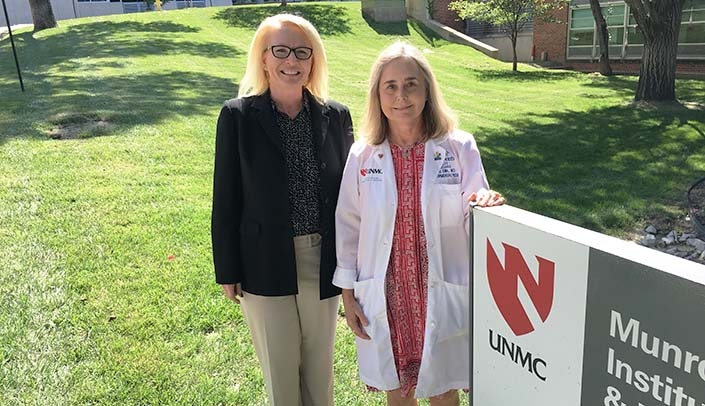The Munroe-Meyer Institute and Legal Aid of Nebraska are embarking on a new collaboration, with Legal Aid providing services to qualifying MMI patients with intellectual or developmental disabilities (IDD).
The new initiative will draw from a multi-year grant through the United Way of the Midlands Karnett Trust.
The Ellen C. Karnett Trust is in its sixth year distributing funds to local programs. Karnett left the trust funds to United Way of the Midlands to administer her wishes to benefit children in our community with intellectual and developmental disabilities. The funds are distributed in honor of Ellen’s son, Richard.
Legal Aid and MMI have been collaborating for several years through MMI’s Leadership Education in Neurodevelopmental and Related Disabilities (LEND) Program.
Through the existing LEND collaboration, law students with Legal Aid get insight into some of the issues and challenges facing the IDD community, and the LEND students working with MMI gain a bit of legal knowledge that might help them in future advocacy efforts.
The new partnership, however, will allow the collaborators to focus on providing legal services.
“Many of our patients have legal issues, and they don’t have financial resources,” said Cindy Ellis, M.D., director of MMI’s LEND program.
The grant supports the provision of legal services for people in the Omaha metro area. Legal Aid staffs a hotline for individuals with intellectual or developmental disabilities or their family members to call to discuss legal problems.
“Our thought was originally to deal with education cases,” said Ann Mangiameli, J.D., a Legal Aid attorney who has worked closely with Dr. Ellis in the past. “If individuals are having issues at schools, we can advocate on their behalf.
“We know that there are very few attorneys that do education law, that represent individuals in education cases, because it is difficult for families to find the money to do it.”
Also, she added, services could include dealing with Social Security disability or Medicaid issues, as well as providing guardianships.
“At age 18, Social Security does what they call a re-determination, which is determining whether somebody, now that they’re an adult, still meets the criteria for disability,” Mangiameli said. “That can be very difficult for any individual to get through, so if they need a guardian to walk them through that, we can do those services as well.”
All services are free, although families may have to pay some filing fees, she said.
Dr. Ellis and Mangiameli said the collaboration has helped to create young lawyers with increased knowledge of and experience in legal issues facing individuals with IDD.
“Hopefully, as the law student goes out into the legal field, even if they are not going to do that kind of law, they may take pro bono cases,” Mangiameli said. “We are raising a crop of lawyers that are sensitive to issues that otherwise lawyers wouldn’t be.”
MMI also receives Karnett Trust support for the Academic Evaluation and Intervention Clinic (AEI Clinic) to provide parents of children with learning difficulties information and strategies to maximize their child’s academic performance.
